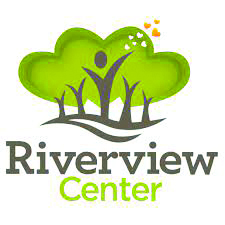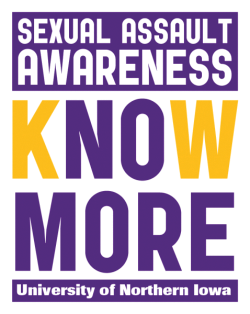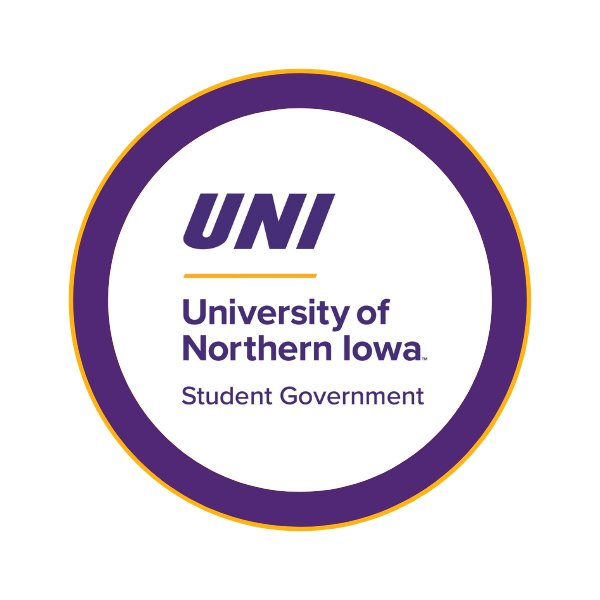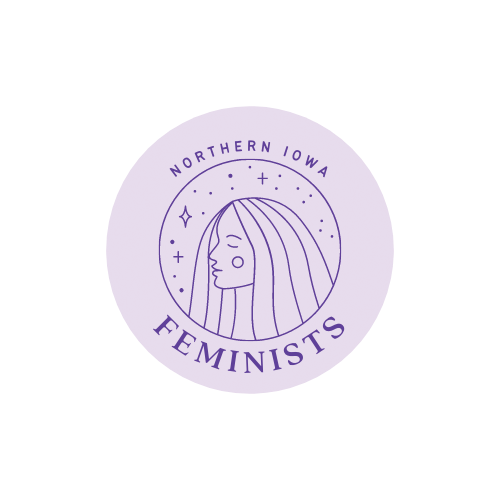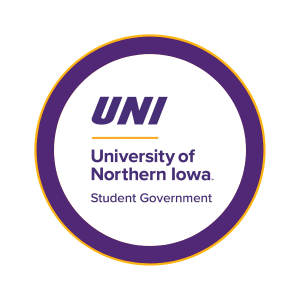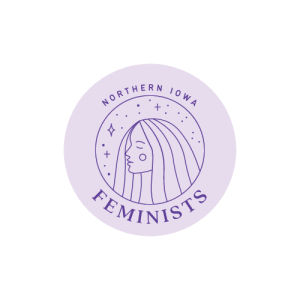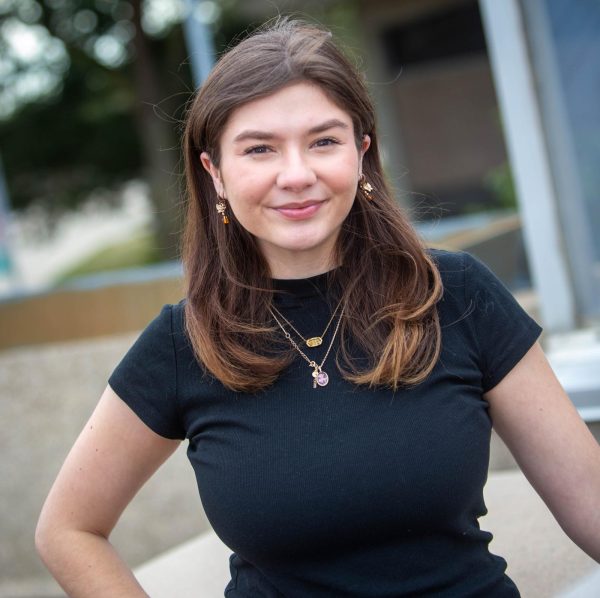Supporting survivors at UNI
Feb 7, 2022
Student leaders share resources UNI offers for survivors of sexual assault
According to RAINN, the nation’s largest anti-sexual violence network, women ages 18 to 24 are at an elevated risk of sexual violence, especially on college campuses. The University of Northern Iowa, their organizations, student organizations and student leaders are all working to make UNI a safer, more equitable place.
Student leaders Samantha Bennett, Student Body President, Leah Gutknecht, Title IX Officer and Assistant to the President for Compliance & Equity Management, Cora Patterson, Director of Gender Violence Prevention for Northern Iowan Student Government, and Madeline Hinz, President of the Northern Iowan Feminists, all weighed in about what UNI’s doing to keep their students safe.
“UNI is in the process of rolling out Green Dot, a program focused on creating long-term change by building a culture of respect and safety.” Gutknecht said, shedding light on what progress UNI is making to continue to make a safer campus. “Our goals for Green Dot include cultivating a community of safety and respect, empower staff, faculty and students to help others and prevent interpersonal violence, and lower the rates of gender and interpersonal violence on our campus and in our community.”
The Green Dot training program is meant to effectively train students on bystander intervention in situations that involve sexual violence. Bennett also discussed the positive effects of the Green Dot program. “Green Dot is a proven, effective tool in combating gender violence and tackles the root of these occurrences. Prevention starts with examining the way we view and treat each other, and calling out the behaviors that we know often act as predecessors to gender violence.”
Bennett also discussed how it is always the right time to start implementing further safety precautions for preventing sexual violence.
“You’re not going to find this mythical, “perfect” time to talk about these things, and dragging our feet about implementing it only hurts our campus and our survivors. I’m sure most survivors would tell you their traumas didn’t come at the most convenient time for them either – sexual assault doesn’t care about your calendar.”
Beyond implementing the Green Dot program at the University, UNI has a strong partnership with the Riverview Center in Waterloo. “UNI currently offers office space to Riverview Center for them to meet with students on campus. In addition, UNI partners with a number of advocacy agencies. Each of them has a specialty area or population that they work with,” said Gutknecht. “UNI intentionally partners with a number of community resources in order to provide connections to any resources that are not provided directly on campus.”
Both Patterson and Hinz discussed their involvement with the Riverview Center. “Riverview does a great job with the work they do for sexual assault survivors, and Northern Iowa Feminists has worked with them in the past and recently with planning outreach on campus and events that promote education and discussion for students,” Hinz said.
Outside of also being involved in NI Feminists, Patterson described her involvement with the Riverview Center. “For starters, I’m an active volunteer at the Riverview Center, so I’d be more than happy to help anyone needing assistance.” Bennett also described her interactions with the Riverview Center and how it directly impacted her life. “Their advocates, when I interacted with them, were able to meet survivors where they were at. Personally, I found them easy to connect with, but I can only speak from my own experience.”
UNI is implementing the Green Dot program, and has an external partnership with the Riverview Center, but offers other ways of supporting survivors.
The main source of support for survivors on campus comes from the Office of Compliance & Equity Management, or OCEM. “OCEM is the central source of assistance to those impacted by gender violence. They work to provide information on resources as well as options for resolution,” said Gutknecht. “In addition, OCEM works with survivors to provide supportive measures that vary greatly, depending on individual needs. Supportive measures can include actions such as notes to professors, schedule adjustments, assistance with policy exceptions, no contact orders, etc.”
Conversely, Bennett discussed her interactions with OCEM, not only the support she received, but the support she didn’t receive – or couldn’t. “I know the staff in OCEM truly want to help survivors as much as possible, and I personally believe that OCEM does whatever they are able to in pursuit of that goal – keyword being: ‘able to.’”
Federal restrictions make it hard for university services to provide as much support as they can, and that, “survivors’ needs may sometimes fall outside the scope of what OCEM can do,” according to Bennett. Outside of just OCEM, UNI has two Title IX Officers, Leah Gutknecht and Kaylee Michelson, who work to connect student survivors to resources, support, and advocacy.
Through the Green Dot program, the Riverview Center, and OCEM and their Title IX Officers, UNI provides multiple resources for survivors. “There are many resources waiting to help students impacted by SA, but one of many issues lies in the fact that not all students know where to find them, or that these resources are even there to begin with,” said Hinz. For students, there are many resources available at UNI, and outside of it. Students can find online resources through UNI at equity.uni.edu and safety.uni.edu. The Title IX Office can be found at Gilchrist 117, and the phone number for that office is (319) 273-2846. The Riverview Center’s Waterloo location can be reached at the number (319) 939-9599, and the local hospitals have a 24 hour emergency line for those in need at (888) 557-0310. UNI has resources for survivors, although sometimes they can be hard to find. The resources listed here have helped many survivors, and will continue to support survivors here at UNI.


